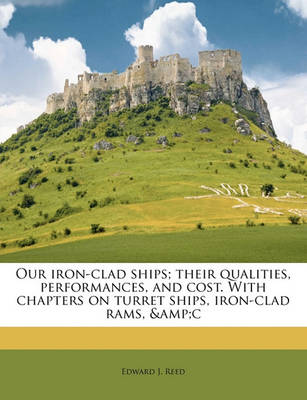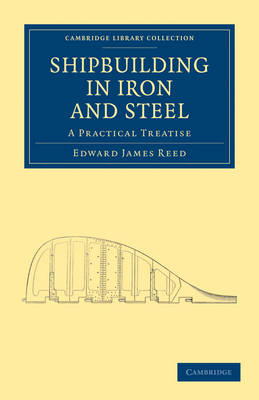Cambridge Library Collection - Technology
2 total works
Sir Edward James Reed (1830-1906) was an innovative naval architect who, after attending the Central School of Mathematics and Naval Architecture in Portsmouth, was appointed chief constructor of the Navy in 1863. This was a crucial time for the navy, as traditional wooden sailing ships began to be armoured or rebuilt in iron in response to more powerful weaponry. Reed pioneered the methodical use of scientific calculations to determine a ship's weight, strength and stability, and was responsible for a number of revolutionary designs. He later founded his own consultancy and designed ships for other countries including Germany, Chile and Brazil. This illustrated handbook, first published in 1869, contains a comprehensive overview of the various classes of iron-clad ships of the time - the new features they incorporated, their capabilities, performance, and their cost. It also deals with converting existing wooden battleships into iron-clads.
Sir Edward James Reed (1830-1906) was an innovative naval architect who, after attending the Central School of Mathematics and Naval Architecture in Portsmouth, was appointed chief constructor of the Navy in 1863. This was a crucial time for the navy, as traditional wooden sailing ships began to be armoured or rebuilt in iron in response to more powerful weaponry. Reed pioneered the methodical use of scientific calculations to determine a ship's weight, strength and stability, and was responsible for a number of revolutionary designs. He later founded his own consultancy and designed ships for other countries including Germany, Chile and Brazil. This textbook, first published in 1869, contains a comprehensive overview of the design and construction of the various classes of iron ships of the time, and the new features they incorporated. It also includes descriptions of procedures in Royal Dockyards and various civilian shipyards.

